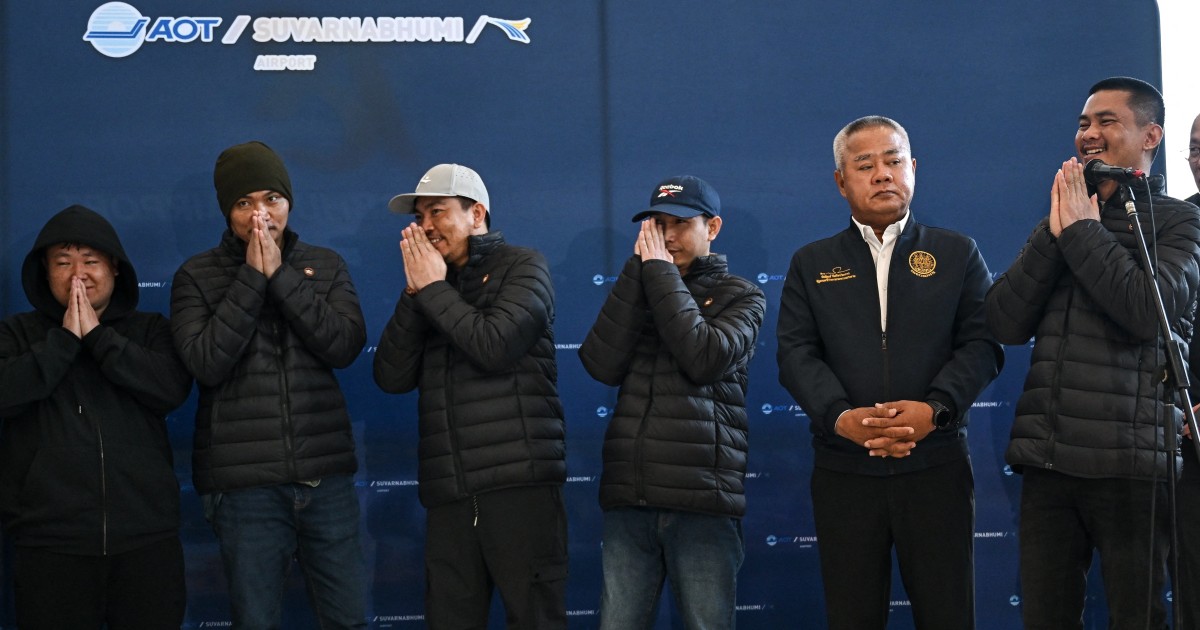Thai Hostages Return Home: A Journey of Resilience After Hamas Release
Five Thai nationals have recently returned to their homeland after a harrowing ordeal as hostages of Hamas. Their release is not just a moment of personal relief for these individuals and their families but also serves to underscore the complexities and emotional toll associated with hostage situations. The journey of these Thai hostages back home symbolizes resilience, hope, and the enduring bond of family.
Understanding the Context of the Hostage Situation
The hostage crisis involving the Thai nationals occurred amidst escalating tensions in the Middle East. In a world where geopolitical dynamics often shift rapidly, the plight of these individuals highlights the human stories that lie behind the headlines. Hostage situations can arise from various geopolitical conflicts, and they often leave a profound impact on the victims and their loved ones.
For the families of the Thai hostages, the uncertainty surrounding their loved ones’ fate was agonizing. The emotional strain of waiting for news is something that many families endure during such crises. In this case, the Thai government worked tirelessly to negotiate their release, showcasing the importance of diplomatic efforts in resolving such dire situations.
The Harrowing Experience of the Hostages
During their time in captivity, these Thai hostages faced unimaginable challenges. Reports indicate that they were subjected to psychological stress and physical hardships. The details of their experience remain largely undisclosed, as many survivors prefer to keep such traumatic events private. However, the resilience they exhibited during this period is commendable.
- Psychological Impact: The mental toll of captivity can be profound. Survivors often deal with anxiety, PTSD, and other mental health issues long after their release.
- Physical Challenges: Hostages may face inadequate food, lack of medical care, and harsh living conditions, all of which can lead to lasting health issues.
- Isolation: Being cut off from the outside world can lead to feelings of despair and hopelessness, compounding the trauma of the experience.
Reintegration into Society
Upon their return, the journey of these Thai nationals is far from over. The process of reintegration into their communities will be crucial. Family and community support plays a vital role in helping individuals recover from such traumatic experiences.
Here are some critical aspects of reintegration:
- Family Support: Reuniting with loved ones can provide emotional healing. The bond of family is often a source of strength during tough times.
- Community Reintegration: Communities can play a pivotal role in helping returnees feel welcomed and supported, easing their transition back to normalcy.
- Professional Help: Access to mental health services is essential. Survivors may benefit from counseling or therapy to process their experiences.
The Broader Implications of Hostage Situations
The return of the Thai hostages serves as a reminder of the broader implications of hostage situations on international relations. Governments must navigate a complex landscape of diplomacy, public sentiment, and security concerns when dealing with hostage crises. The emotional toll on families demands that governments take a compassionate approach while also ensuring the safety of their citizens.
Government Response and International Cooperation
The Thai government’s response to this crisis illustrates the importance of international cooperation in addressing hostage situations. Negotiations often require collaboration with other nations, organizations, and even non-state actors. In this case, the Thai authorities worked alongside various international partners to secure the release of the hostages.
Effective communication and coordination are key components in these scenarios. The government’s transparency during the process can help reassure families and the public, demonstrating that efforts are being made to resolve the situation.
Emphasizing Resilience and Hope
As these five Thai hostages embark on their new chapter at home, their story is one of resilience. The ability to endure hardship and emerge from it is a testament to the human spirit. Their journey serves as an inspiration not only for others who may face similar challenges but also for society at large, reminding us that hope can thrive even in the darkest circumstances.
The welcome they received upon their return was filled with emotional reunions, tears of joy, and expressions of gratitude. It is a powerful reminder of the strength of familial and community bonds in the face of adversity.
Looking Forward: Lessons Learned
The ordeal faced by the Thai hostages also provides important lessons for governments and organizations involved in crisis management:
- Preparation and Training: Governments should ensure their personnel are well-prepared for crisis situations, including hostage negotiations.
- Public Awareness: Educating citizens about the potential risks in conflict regions can help them make informed decisions.
- Support Systems: Establishing robust support systems for families of hostages can alleviate some of the emotional burdens during crises.
Conclusion: A Journey of Resilience
The safe return of the five Thai nationals is a moment filled with relief and joy, marking the end of a painful chapter for them and their families. Their experience serves as a poignant reminder of the complexities surrounding hostage situations and the resilience of the human spirit. As they reintegrate into their lives, the stories of these individuals will continue to resonate, inspiring hope and highlighting the importance of compassion in the face of adversity.
In the end, the journey of these Thai hostages back home is not just about survival but also about the profound connections that bind us all. It reinforces the notion that, no matter the circumstances, the human spirit can endure, heal, and find hope once again.
See more Update My News



